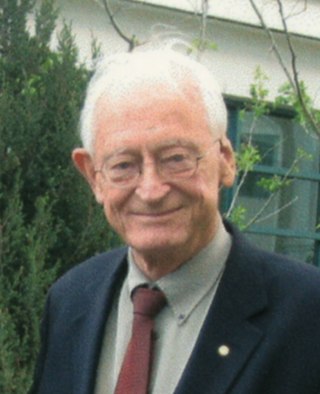Top Qs
Timeline
Chat
Perspective
MacDiarmid Institute for Advanced Materials and Nanotechnology
Research centre at Victoria University of Wellington in New Zealand From Wikipedia, the free encyclopedia
Remove ads
The MacDiarmid Institute for Advanced Materials and Nanotechnology (often simply called the MacDiarmid Institute) is a New Zealand Centre of Research Excellence (CoRE) specialising in materials science and nanotechnology. It is hosted by Victoria University of Wellington, and is a collaboration between five universities and two Crown Research Institutes.
Remove ads
Background
Summarize
Perspective

The Centres of Research Excellence initiative was set up in 2002 to allocate contestable New Zealand government funding through the Tertiary Education Commission to collaborative research groups. At the time the funding was announced, two materials science research groups were putting together competing bids.[1]
One, based at the University of Canterbury, was the Nanostructure Engineering, Science and Technology (NEST) group. They had already received a Marsden grant in 1998 and run a 2001 workshop on semiconductor nanostructures in Queenstown attended by Nobel Laureate Klaus von Klitzing. Their bid, titled "the New Zealand Centre for Nanoengineered Materials and Device Research", was led by Richard Blaikie and included researchers Maan Alkaisi, Simon Brown, Steve Durbin and Roger Reeves.[1]
The second bid, put forward by Paul Callaghan and Jeff Tallon at Victoria University of Wellington, was titled "The MacDiarmid Institute for Advanced Materials". At a meeting at the Curator's House restaurant in Christchurch in 2001 the two groups agreed to join forces and put forward a joint proposal, drawn out out on a table napkin, for the "MacDiarmid Institute for Advanced Materials and Nanotechnology Research", named at the insistence of Callaghan after Alan MacDiarmid, a New Zealander who had won the Nobel Prize in Chemistry in 2000. Callaghan representing Victoria University was to lead the CoRE, and Richard Blaikie from UC was to be deputy director.[1]
The bid was successful, and the MacDiarmid Institute was formed on 1 July 2002, as a collaboration between Victoria University, the University of Canterbury, the University of Otago, Massey University, GNS Science, and Industrial Research Ltd; later Callaghan Innovation and the University of Auckland were included.[1]
Remove ads
Research
The Institute divides its work into four research areas:[2]
- Towards Zero Waste – Reconfigurable Systems
- Towards Zero Carbon – Catalytic Architectures
- Towards Low Energy Tech – Hardware for Future Computing
- Sustainable resource use – Mātauranga Māori Research Programme
Awards
From 2004 to 2008, the MacDiarmid Institute sponsored the annual Young Scientist of the Year awards for up-and-coming scientists and researchers in New Zealand, organised by the Foundation for Research, Science and Technology.[3][4] These awards replaced the FiRST Scholarship Awards, and were replaced by the Prime Minister's MacDiarmid Emerging Scientist Prize.[3][5][6][7]
Directors
Advanced Materials and Nanotechnology conference
The MacDiarmid Institute runs a biennial international conference on advanced materials and nanotechnology (AMN). Its precursor, referred to by Richard Blaikie as "AMN0", was the 2001 semiconductor nanostructures conference in Queenstown organised by Simon Brown and Joe Trodahl.[1] The AMN conference series was conceived of by Alan Kaiser, a founding member of the Institute, who chaired AMN1 in 2003 in Wellington.[16] AMN11 was held in February 2025 for the first time in Christchurch, at Te Pae conference centre. It featured research on mechanobiology, quantum computing, and carbon-free iron production; Nobel Laureate Moungi Bawendi gave a public talk attended by over 650 people.[17][18]
Remove ads
See also
References
External links
Wikiwand - on
Seamless Wikipedia browsing. On steroids.
Remove ads


